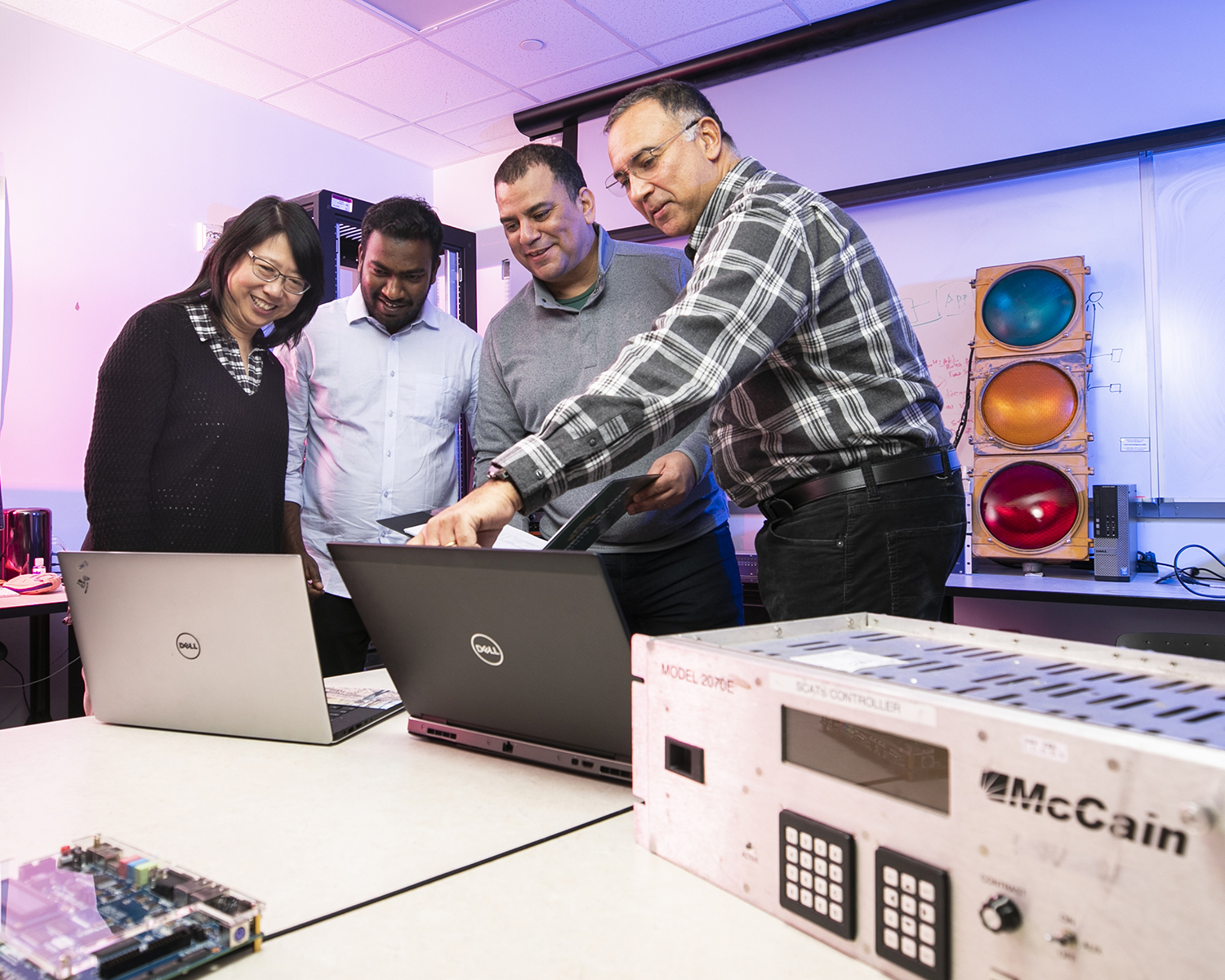In This Story
Cybersecurity experts from Mason’s College of Engineering and Computing are playing an important role in protecting American manufacturing automation and supply chains from cyber threats and designing better security into advanced manufacturing plants.
Through its membership with the Cybersecurity Manufacturing Innovation Institute (CyManII, pronounced sī-man-ē), researchers will focus on developing an integrated cybersecurity architecture and achieving significant energy efficiencies in manufacturing.
The institute is led by the University of Texas at San Antonio and has an initial 5-year budget of $111 million, including $70 million from the U.S. Department of Energy. The remaining budget is comprised of cost-sharing, member contributions, and other factors that together will ensure the self-sustainability of CyManII after this initial period.
As a managing member, Mason is overseeing and operating CyManII’s East Coast headquarters on the Arlington Campus. The headquarters will house the institute’s primary offices, meeting space, and training facilities for the National Capital Region.
“The Arlington facility will house lab space and equipment to demonstrate, test, and validate CyManII’s emerging cybersecurity and advanced manufacturing technologies and products,” says Associate Professor and Vice President for Securing Automation and Supply Chain Paulo Costa. “Our proximity to the Department of Energy and Washington, D.C. will be useful to visitors when we return to in-person meetings and events.”
The 13,000-square-foot facility supports robotic platforms that evaluate security vulnerabilities, the impact of 5G on autonomous vehicles, the power grid, smart buildings and cities, and smart manufacturing. The space will also host a robotic smart manufacturing testbed and provide meeting and temporary office space for visiting researchers and staff.
Other benefits of filling the role of managing partner include representation on the governance board for leadership on strategic directions, planning, prioritization, and key programming.
Mason will participate in road mapping efforts and strategic decisions about investments, technical focus, and projects. Mason faculty will also gain complimentary access to CyManII events, tech showcases and meetings, and participate in annual RFP competition with extensive outreach promoting completed projects/technologies.
Mason researchers from the College of Engineering and Computing, who are setting up the lab, are playing key roles in CyManII’s first-year projects, finding ways to protect manufacturing automation and supply chains from cyber threats, and designing better security into advanced manufacturing plants.
In one of the projects, Professor Duminda Wijesekera, CyManII’s Coordinated Vulnerability Awareness Lead, is working with Bo Yu, research assistant professor, and Matt Jablonski, a PhD candidate and research assistant, to study Smart Manufacturing Architecture (SMA).
SMA has the potential to make American manufacturing more productive, more energy-efficient, more competitive, and verifiably correct. “We hope our research in Smart Manufacturing Architecture provides the backbone for modeling that will speed up the adoption of these technologies and processes and help companies to create new, secure, integrated systems,” says Jablonski. “We know that the sooner we can identify risks, the better we can help manufacturers mitigate the risks.”
The team’s work addresses potential methods for formally analyzing safety and security risks in Automated Manufacturing Systems. They emphasize how to identify components and the communication interfaces and components that can be modeled using formal methods.
Recently the team used an automated manufacturing system that produces aluminum cans to show how these processes are modeled using a suite of formal methods that included Linear Time propositional Temporal Logic, Architecture Analysis, and Design Language, as well as fault and attack tree analysis.
“This work is some of the most exciting work I’ve ever done,” says Yu. “The real-world application of this knowledge has tremendous impact. This modeling and what it does can protect the reputation of a business by finding weaknesses early on.”
As CyManII’s work becomes more established, the research enterprise will expand and grow into additional areas, such as other cyber-physical systems that directly control physical processes such as machinery, vehicles, cranes, and other movable infrastructure.
“Formal guarantees are needed in secure manufacturing automation because, in their absence, there is no acceptable way to guarantee against failures that occur due to malice and natural faults,” says Wijesekera. “These failures can affect the operational safety of machinery, operators, and the equipment that uses manufactured parts, resulting in wasted material and energy.”

